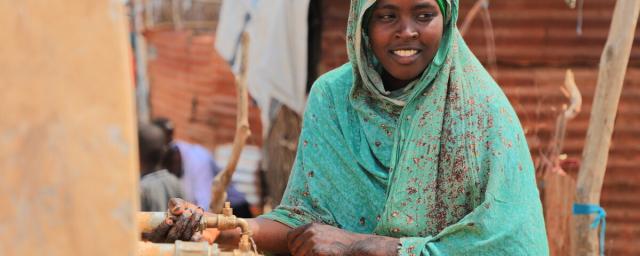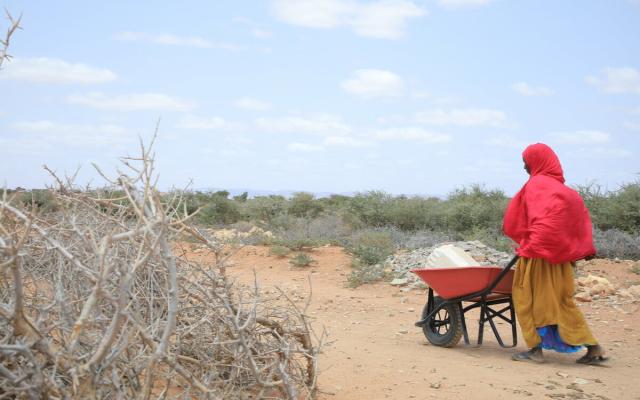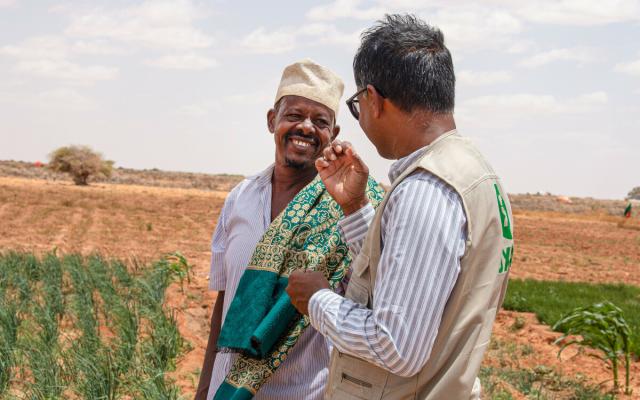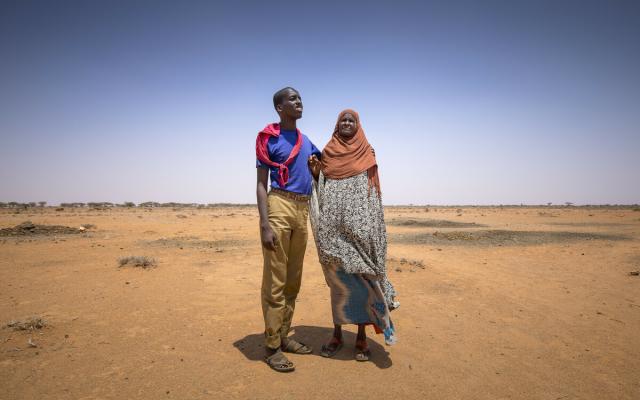
Aqiqah, a mother of three collects water from an Oxfam-constructed water tank in Beledweyne, significantly reducing the burden on women and girls who previously had to walk long distances to access water. (Photo: Mohamoud Ali/Oxfam)
Somalia, the easternmost country in continental Africa, faces significant challenges due to prolonged conflict, climate change, and economic instability. In a population of approximately 18 million, many struggle with food insecurity, water insecurity, limited access to essential services, and ongoing humanitarian crises. Oxfam plays a crucial role in addressing humanitarian, development, and advocacy challenges.

Anisa Jama Hassan from Dhudhub Dhiilo in Somaliland, Somalia. As the drought continues to ravage Somalia, the situation in internally displaced person camps grows increasingly dire, with malnutrition and disease affecting the most vulnerable. (Photo: Ahmed Osman/Oxfam)
Challenges
Somalia continues to grapple with multifaceted humanitarian and development-related challenges, including recurrent droughts, flooding, and protracted conflicts that exacerbate poverty and displacement. The country has one of the highest rates of malnutrition globally. Political instability hampers effective governance and service delivery, while high unemployment rates, particularly among young people, contribute to social unrest.
However, there are opportunities for strengthening local capacities, building resilience, improving livelihoods, promoting gender equality, and leveraging remittances to stimulate economic growth.
Impact on People
The ongoing crises disproportionately affects women, children, and internally displaced persons (IDPs). 3.8 million people in Somalia are internally displaced mainly due to climate shocks and conflict. DPs experience heightened risks of violence and exploitation, further marginalizing them within their communities.

Mohamed Omar (left) is a resident of Ceel-nimcon village, he participated in Oxfam's farmer's field school project in Eilafayn district. Mohamed describes what he planted in the garden. (Photo: Abdiaziz Adani/Oxfam)
Oxfam’s Role
Oxfam started operations in Somalia in 1992. We continue to play a vital role in addressing humanitarian, development, and advocacy challenges through integrated programs focused on Water, Sanitation and Hygiene (WASH), food security, gender justice, inclusive governance, and resilience strengthening. Our approach emphasizes collaboration with local organizations and stakeholders to ensure that interventions are contextually relevant and impactful.

Dehabo Hassan Darror (right) with her mentally disabled grandson (left). Her wish and her dream is to build a house with a latrine, so she can take care about her grandson. (Photo: Petterik Wiggers/Oxfam Novib)
Looking Ahead
It is essential to strengthen local governance structures, enhance access to education and healthcare, and expand economic opportunities for marginalized groups. Continued investment in community resilience and adaptive strategies will be crucial in mitigating the impacts of climate crisis and ensuring sustainable development in Somalia.